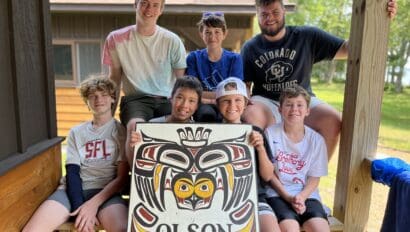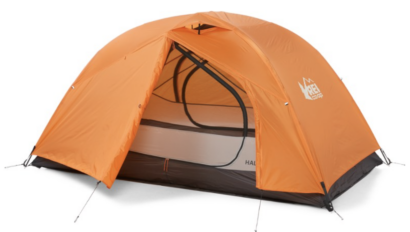grit
/grit/
- Small loose particles of stone or sand (“she had a bit of grit in her eye”)
- Courage and resolve in the face of hardship; strength of character; indomitable spirit (“he managed to succeed by his grit”)
—
Grit is becoming a buzz word. It comes up in job interviews, on college application essays, and in self-improvement articles. Grit is something people want. Grit lets us achieve, pick ourselves up, and become better. We want our kids to have grit so that when they face challenges on their own they are empowered and propelled to the next challenge. We need grit so that when life inevitably knocks us down, we get back up.
Maybe grit is on the forefront of our minds because it is becoming harder and harder to come by. No longer are kids thrown into the pool and told to swim or sink. And sometimes it seems like less and less of us have to walk uphill both ways to get to school (in a snowstorm no less!). The ‘tough love’ form of building grit is a dated philosophy. It works great for the swimmers, but for the sinkers, tough-love-teaching can be traumatizing. Gambling for either instant success or debilitating failure is not effective teaching.
But it’s important to remember that impactful growth will not occur without departing from our comfort zones. In a generation that coined the term ‘helicopter-mom,’ kids have adults to step in and have the tough conversations with coaches, teachers or bosses. Completely avoiding the scary deep-end of the pool leaves us comfortable, yet unable to swim. Experts in child development agree, coddling is not helping. Through years of experience, author Audrey Monke emphasizes that while the ‘sink-or-swim’ teaching philosophy fails for many young people, keeping our kids perpetually comfortable and happy fails for a different reason.
“By not preparing kids to face the discomforts that inevitably come up in life, parents unintentionally crippled many kids with a profound lack of resilience.” -Audrey Monke, Happy Campers
Audrey Monke draws upon vast experiences as a camp director to find the middle ground between the philosophies of ‘sink or swim’ and ‘swoop in and save.’ The middle ground is where grit is developed. Year after year, campers return home from a month at Chippewa, and amaze parents, teachers and coaches with their resilience, independence and courage. Monke agrees that camp is a perfect crucible for grit-building. Her list of the five ways to grow grit are as follows:
1. Learning self-reliance and responsibility (At Camp Chippewa, parents are not around. Campers are always supervised and supported, but passing ranks, getting to activities, caring for equipment, etc., are founded on independence and self-reliance.)
2. Experiencing mistakes and failures (We can’t guarantee your son will get up on skis his first, second, or twentieth time. And we can’t guarantee they will shoot a 40 in kneeling, or qualify for the fencing tournament, or land the walleye on the end of their line. Life is just better that way.)
3. Talking about, setting and reaching goals (Every young voyageur knows the sweetness of arriving at a campsite after a day on the trail, or earning their tam after miles of travel through the Canadian wilderness.)
4. Facing new challenges (Canoeing? Sailing? Climbing? Fencing? Campcraft? Portaging? The breadth of activities at Camp Chippewa exists not only to entertain and excite, but to introduce new skills and challenges. A great athlete may have never learned a spin serve before, and an A-student may have no idea how to tie a clove hitch or a bowline. There is always learning to be done at Camp Chippewa.)
5. Feeling emotional and physical discomfort (Holding a rifle in offhand is not easy. Neither is pulling a canoe through the Cass-Buck channel during the Chippewa Triathlon. And everyone who has paddled into a blaring headwind will agree that it is no walk in the park. Grit-Building 101.)
Audrey Monke’s main point when writing about grit is that our kids need opportunities to build it. “Being sheltered from challenging situations did not leave our kids safer. Instead it led to a generation of adults who hesitate to take risks, fear failure, turn to substances to stifle difficult emotions, and want rewards and promotions for average performance.” (Happy Campers, 106). Camp Chippewa has provided young men with grit that year after year shows up in their college application essays, their job interviews, and the way in which they grow and succeed in life. No matter how far from the Canadian wilderness a man of Chippewa may be, the grit remains.
“Courage and resolve in the face of hardship; strength of character; indomitable spirit.”
—
For more on why camps facilitate grit, and what we can learn as parents for the non-camp months, read Happy Campers.


